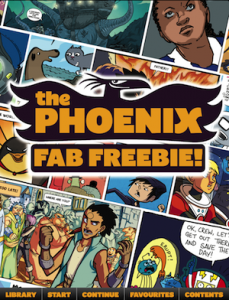“Have the end in sight”
The Guardian asked five children’s-book editors with books up for an award [that I’ve never heard of—“Branford Boase”?] for their advice for new authors.
David Fickling of The Phoenix magazine and many books included this in his answer:
David Fickling of The Phoenix magazine and many books included this in his answer:
People always say that a story must have a beginning, a middle and an end. If that is true then by far the most important part is the end. Before you set off on a writing project it saves a lot of time to have the end in sight.The last part of Fickling’s comment runs directly counter to what American agents and editors say about synopses: you have to divulge the ending. Otherwise, they won’t trust you to supply a good one. But perhaps Fickling is now used to working with authors who’ve built up trust with him.
That doesn't mean you have to know exactly what is going to happen at the end of your story, but you should have a sense of the ending note in mind. This may also help tell you how long your text is going to be.
And you don't need to tell the editor or publisher what will happen or what it's about either, that's your business. All the editor or publisher really needs is the reassurance that there is an ending and that the narrative will be good. Editing is all about trust.



No comments:
Post a Comment